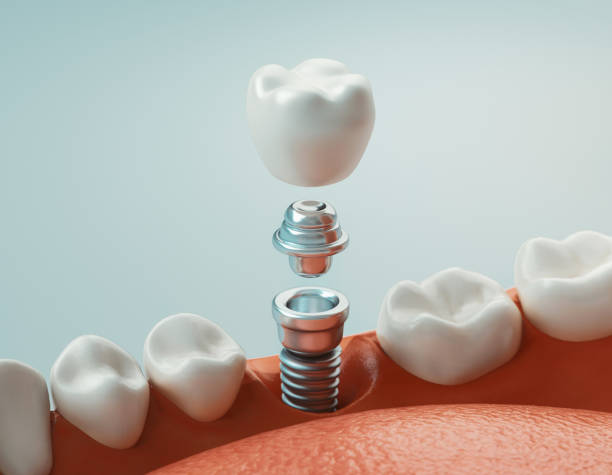
02 Haz Types Of Dental Implants
 Dental implants have revolutionized the field of restorative dentistry by providing a durable and natural-looking solution for missing teeth. With advancements in types of dental implants technology and materials, its various types have been developed to cater to the diverse needs of patients. This article aims to provide a comprehensive overview of the different available today.
Dental implants have revolutionized the field of restorative dentistry by providing a durable and natural-looking solution for missing teeth. With advancements in types of dental implants technology and materials, its various types have been developed to cater to the diverse needs of patients. This article aims to provide a comprehensive overview of the different available today.
Endosteal implants are the most commonly used that are placed directly into the jawbone through a surgical procedure. These consist of titanium or titanium alloy screws that act as artificial tooth roots. Once the implant is securely fused with the jawbone, a dental crown is placed on top, providing a functional and aesthetic replacement tooth.
Different Types Of Dental Implants
Subperiosteal implants are an alternative to endosteal ones when the patient’s jawbone lacks adequate height or width for traditional implant placement. Instead of being inserted into the jawbone, these rest on top of the bone, underneath the gum tissue. A metal framework is custom-made to fit the contours of the jawbone, and artificial teeth are attached to the framework. These are typically recommended for patients with bone loss or those who cannot undergo bone grafting procedures.
 The All-on-4 dental implant technique is a popular option for patients who require a full arch or entire mouth restoration. This approach utilizes four strategically placed with types of dental implants per arch, which provide stability for a fixed prosthesis, such as a denture or bridge. All-on-4 offer a cost-effective and time-saving solution, as they can often be placed without the need for bone grafting.
The All-on-4 dental implant technique is a popular option for patients who require a full arch or entire mouth restoration. This approach utilizes four strategically placed with types of dental implants per arch, which provide stability for a fixed prosthesis, such as a denture or bridge. All-on-4 offer a cost-effective and time-saving solution, as they can often be placed without the need for bone grafting.
Zygomatic implants are designed for individuals who have severe bone loss in the upper jaw and are not suitable candidates for traditional implant placement.
Instead of being anchored in the maxillary bone, these are anchored in the cheekbone (zygoma). Zygomatic implants provide a stable foundation for the placement of a prosthesis and can dramatically improve the quality of life for patients with extensive bone loss.
Types of dental implants also known as narrow diameter implants (NDIs), have a smaller diameter than others. They are primarily used to stabilize dentures and provide support for overdentures. Mini implants are often a less invasive alternative to standard implants, requiring a simpler surgical procedure and shorter healing time.
The Advancements In Dental Implant
Technology have led to the development of various implant options, allowing dentists to cater to the unique needs and conditions of each patient. From endosteal and subperiosteal implants to All-on-4, zygomatic, and mini implants, there is a wide range of choices available. A consultation with a qualified dentist or oral surgeon is crucial to determine the most suitable type of implant based on individual circumstances. And also it provides a long-lasting and aesthetically pleasing solution for missing teeth, improving both oral health and overall quality of life.
